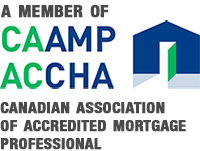


JESSE BRUN
Mortgage IntelligenceLicense #10428
Mortgage Broker (NB)
Mortgage Agent Level 2 (ON)

Construction Loans Richmond Hill ON
Streamlined Construction Loans in Richmond Hill: Your Path to Hassle-Free Financing
Navigating the intricacies of obtaining construction financing in Richmond Hill ON can be daunting, particularly when traditional banks fail to meet your needs. Recognizing these challenges, we provide a superior solution: top-tier private construction lenders in Richmond Hill ON. Our dedicated lenders prioritize home builders, employing advanced methods to expedite approvals seamlessly. With no credit score, income, or presale requirements, our process is streamlined for maximum efficiency and convenience.
Tailored Equity-Based Lending Solutions
We specialize in offering solutions for builders who find it difficult to manage multiple projects simultaneously. If you own land without a mortgage or another property with equity, we can quickly approve your next construction project with our construction loans in Richmond Hill. Our equity-based lending allows you to run multiple projects simultaneously, keeping your construction crews active, reducing downtime, completing more projects, and significantly increasing your profits.
Overcoming Financial Hurdles with Construction Loans in Richmond Hill
When traditional banks deny financial support for your project, or if you aim to complete more projects faster, our construction loans in Richmond Hill can provide the solution. We eliminate the headaches and hassles of securing funds, allowing you to focus on what matters most—building. For expert advice on your project and information on the best construction loans in Richmond Hill, call us at (888) 878-4660.
Expert Guidance and Proven Success in Construction Loans in Richmond Hill
Jesse’s mortgage team is renowned for its expertise in construction loans in Richmond Hill, serving home builders across Ontario and Atlantic Canada. With over 14 years of experience in alternative lending and construction financing, Jesse has financed numerous construction projects. Recognizing the need for quick and easy financing solutions, Jesse and his team are dedicated to helping construction companies thrive with the best construction loans.
Award-Winning Service and Industry Recognition
A testament to their excellence, Jesse’s team received the award for Top Canadian Mortgage Team with under 20 agents within Mortgage Intelligence, one of Canada’s largest and most trusted national mortgage brokerages. Over the years, Mortgage Intelligence has received numerous industry accolades, including Top Canadian Mortgage Brokerage, further solidifying our reputation for providing top-tier construction loans in Richmond Hill.
Fast and Flexible Pre-Approval for Construction Loans in Richmond Hill
Our office can pre-approve you for construction loans in Richmond Hill for up to 70% of the finished value of the project within minutes. If you own properties with equity, we can likely pre-approve you for 100% of the project cost. Our lenders have no income or credit requirements, no need for pre-sales, and offer very fast and flexible construction draws. Draws are typically approved within hours and released within 24 hours, with no early payout penalties, no home warranty requirements, and no CMHC fees. You can also use other properties, including your personal residence, to secure financing with construction loans in Richmond Hill.
Maximizing Your Project Capacity and Profits
If you aspire to complete 2 to 3 times more projects per year and dramatically increase your annual profits, our construction loans in Richmond Hill are designed to help you achieve these goals. By providing the financial support necessary to expand your project capacity, we enable you to grow your business efficiently and effectively.
Comprehensive Support and Consultation
In addition to providing financing, we offer comprehensive support and consultation to ensure your project's success. Our team of experts is available to guide you through every step of the process, from initial application to final draw. We understand the unique challenges faced by builders and are committed to providing the best construction loans in Richmond Hill to meet your specific needs.
Understanding the Richmond Hill Market
The Richmond Hill real estate market is dynamic and growing, making it an excellent location for new construction projects. Our deep understanding of the local market trends and demands ensures that we provide construction loans in Richmond Hill tailored to the unique needs of builders in this region. We stay updated with the latest market data to offer you the most relevant and beneficial financing solutions.
Building Long-Term Relationships
Our commitment to your success extends beyond just providing construction loans. We aim to build long-term relationships with our clients, offering ongoing support and advice as your projects progress. Our team is dedicated to being a reliable partner in your construction endeavors, helping you navigate any challenges and seize opportunities for growth.
Innovative Financing Options
We continuously explore innovative financing options to provide you with the best construction loans in Richmond Hill. Whether it's leveraging new financial instruments or adopting cutting-edge technology for faster approvals, our goal is to stay ahead of the curve and offer you the most efficient and effective financing solutions available.
Personalized Service
Every construction project is unique, and so are your financing needs. We offer personalized service to ensure that our construction loans in Richmond Hill are perfectly aligned with your specific requirements. From custom loan terms to flexible repayment options, we tailor our services to provide you with the most convenient and supportive financing experience.
Environmental and Sustainable Construction
With the growing emphasis on sustainable and environmentally-friendly construction practices, we support builders who are committed to green building. Our construction loans can be used to finance projects that adhere to high environmental standards, promoting sustainability and reducing the ecological footprint of new developments.
Community Impact
Construction projects have a significant impact on the local community, creating jobs and boosting the economy. By providing the best construction loans in Richmond Hill, we contribute to the growth and development of the community, supporting builders who create valuable infrastructure and housing solutions.
Future-Proofing Your Business
In an ever-changing economic landscape, it's crucial to future-proof your construction business. Our construction loans in Richmond Hill are designed to offer the stability and flexibility you need to adapt to market changes and continue growing. We provide financial solutions that help you stay competitive and resilient in the face of industry challenges.
Contact Us Today for Construction Loans in Richmond Hill
For more information and expert advice, call us at (888) 878-4660. Let us help you achieve your construction goals with the best construction loans in Richmond Hill. Our commitment to your success means providing the financial solutions you need to build your future. Contact us today to explore how our construction loans in Richmond Hill can transform your building projects and elevate your business to new heights.
By offering a comprehensive range of services and unparalleled expertise, we ensure that you have access to the best construction loans. Our goal is to support your vision and help you realize your construction projects with ease and confidence. Reach out to us today and let's build a successful future together.


